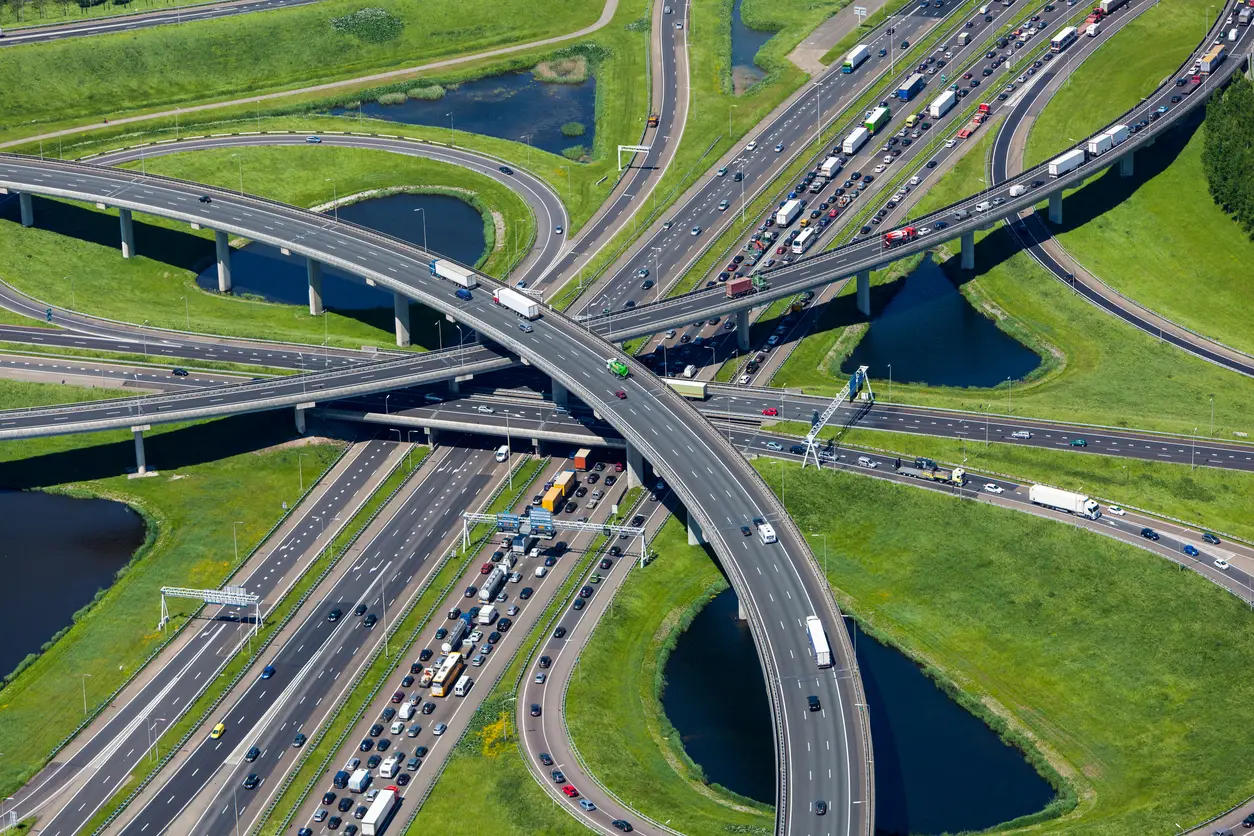What are business travel costs?
Business travel expenses are costs you incur for trips directly related to your business. Think of trips to customers, suppliers, meetings, business events or training courses. It does not matter which means of transport you use, car, train, bus, taxi or even bicycle, as long as the purpose of the trip is business-related, the costs are in principle deductible.
To deduct these costs, you need to record them properly in your records. For each trip, record the date, purpose, route, means of transport and cost. This can be done manually in a trip log, but an accounting app such as MoneyMonk makes it easier. With it, you register trips automatically or manually, including the type of trip, the distance and a receipt or ticket. This way, you easily meet the requirements of the tax authorities.
Company car
Do you have a car that belongs to your business assets? If so, you are dealing with a company car. In that case, you may include almost all car costs as business expenses. Think about:
- Fuel (petrol, diesel, electricity)
- Maintenance and repairs
- Motor vehicle tax
- Insurance
- Parking charges
- Toll roads and vignettes
- Depreciation of the car
All the expenses you incur for this car are processed in your accounts. This way, you reduce your taxable profit, which ultimately benefits your income tax.
Addition
Do you also use your business car privately? Then you have to deal with addition. If you drive more than 500 kilometres privately per year with the company car, you have to add an amount to your profit. That amount is determined as a percentage of the catalogue value of the car. In most cases this is 22%, unless you have an electric car, in which case a lower percentage applies up to a certain amount.
Private car: deduct business kilometres
Do you use your private car for business trips? Then you cannot deduct individual car expenses, such as fuel or maintenance. Instead, you may deduct a fixed amount from your profit per business kilometre driven. This is called the kilometre allowance and is set at €0.23 per kilometre by 2026.
This amount covers all car expenses: fuel, maintenance, insurance and parking costs. So keep good records of your business trips, as every kilometre counts. For example, do you drive 3,000 kilometres on business? Then you can deduct 3,000 × €0.23 = €690 from your profit.
Trip registration and proof for the tax authorities
To deduct your travel expenses, you must be able to prove that you actually made the trips. A good trip registration is therefore indispensable. In it, you record each trip:
- The date
- The departure and arrival address
- The number of kilometres driven
- Whether business or private
Do you use a company car and want to avoid additional taxes? Then you should also keep track of mileage at the beginning and end of the year and per trip. This can be done manually in Excel, but there are also apps and accounting programmes.
Also make sure you keep receipts, tickets or fuel receipts. In case of an audit, you should be able to prove that the travel expenses you claimed were actually incurred.
Deduct public transport travel costs
Do you travel on business by train, bus, metro or tram? Then you may deduct those costs in full. There is no fixed mileage allowance as with the car. You may deduct the actual costs. Think of individual tickets, subscriptions or OV-chipkaart transactions.
Just make sure you keep your tickets. For example, you can download a summary of your OV-chipkaart use every month. This will show that the trips were business trips.
Deducting taxi costs
Did you take a taxi to get to a client or appointment on time? Then those costs are also deductible, provided the trip was business-related. Keep the receipt or digital invoice from Uber, for example. You may include the entire amount as a business expense.
Travel costs abroad
Do you need to travel abroad for your business? For example, for a trade fair, training course or customer visit? Then you may also deduct those travel expenses. Think of flight tickets, international train tickets, rental cars or taxis locally.
Note: subsistence expenses such as hotel stays and meals are not always 100% deductible. Those fall under a different scheme. But all transport costs you incur for a business purpose are fully deductible.
Commuting
For employees, commuting is usually not a deductible expense. But as a self-employed person, you may include the kilometres you make from home to your workplace as business trips. So do you drive to your studio, office or client every day? Then you may include those kilometres in your mileage allowance or trip registration.
Note that for VAT purposes, commuting kilometres are considered private, but for income tax purposes they are business. So that makes them deductible.
Pass on travel costs to your client
In some cases, you can pass on your travel costs to your client. This can be done in two ways:
- You incorporate the cost into your hourly rate.
- You specify travel expenses separately on the invoice.
If you invoice the costs separately, you have to charge VAT on them. You may of course also enter the original costs as business expenses, but bear in mind that you will owe VAT on the recharged portion. Agree clear arrangements with your customer in advance, for example in your quotation or order confirmation.
Deducting travel expenses on income tax
All business travel expenses you incur are recorded in your accounts as business expenses. They reduce your profits, which means you get less income tax return pays. There is no special box for travel expenses in your tax return. They are simply part of your total business expenses.
Make sure you only include expenses that are truly business-related. In doubt about whether a trip falls under your work? Then ask yourself: would I make this trip if I didn't do this work? If the answer is no, then the trip is business. If the answer is yes, then the trip probably belongs to your private expenses.






